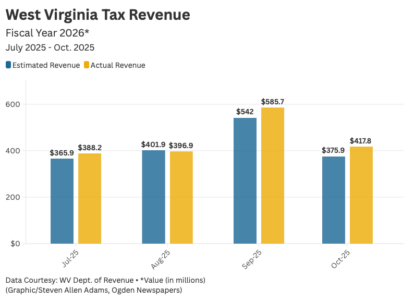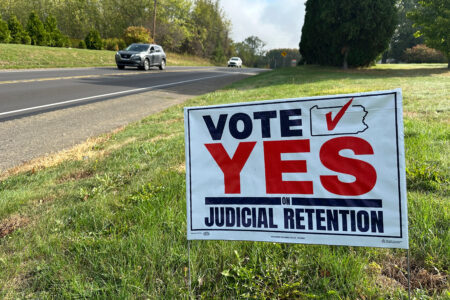DSCC Seeks Resolution To Public Calendar Request
CHARLESTON — The campaign arm representing the Democratic caucus in the U.S. Senate is seeking a quick ruling as it tries to obtain the public calendar and schedule for Gov. Jim Justice, a Republican Senate candidate, and key staff in the governor’s office.
The Democratic Senatorial Campaign Committee filed a motion for summary judgment Wednesday in Kanawha County Circuit Court seeking a decision by Judge Jennifer Bailey to grant access to records for all scheduled meetings involving Justice, Chief of Staff Brian Abraham, Deputy Chief of Staff Ann Urling and General Counsel Berkeley Bentley going back to January 2017 when Justice first took office.
“The denial to produce these public records appears calculated to attempt to benefit the governor politically,” wrote attorneys representing the DSCC. “Gov. Justice declared his candidacy for the U.S. Senate in April, and his actions as governor will no doubt be of keen interest to voters as they decide who they will support in that race.”
The DSCC filed a lawsuit at the end of May after the governor’s office refused to turn over records sought by the organization through a Freedom of Information Act request. Diana Atiz, a research director with the committee, filed a FOIA with the governor’s office on April 13 seeking copies of records.
In an April 20 response to Atiz, Bentley cited exemptions in the state’s FOIA law that allow state officials to withhold certain documents considered drafts or documents used by staff to coordinate both personal and official schedules. However, the governor’s office turned over similar records to the Associated Press in 2019 after first denying the AP’s FOIA request.
In that AP story, reporter Anthony Izaguirre wrote that a review of seven months of calendar and schedule records “… shows he almost never meets with his cabinet, is rarely at the capital and was largely missing at one of the most critical points of this year’s legislative session.”
“The governor may understandably desire to avoid another round of similar criticism, but he is the chief executive of the State and has the duty to ensure that its laws are faithfully executed,” wrote the DSCC attorneys. “West Virginia law does not allow the Governor’s Office to evade public scrutiny in this way.”
The DSCC attorneys are seeking a declaratory judgment from Bailey requiring Justice and the Governor’s Office to turn over the records, including an injunction ordering the office to comply plus the awarding of court fees. In a separate motion, DSCC attorneys are asking Bailey to deny a motion from the Governor’s Office seeking dismissal of the lawsuit.
“The governor’s office professes confusion over the meaning of ‘the public’s business.’ That confusion is disheartening,” the attorneys wrote. “The plain meaning of the phrase, and the Supreme Court of Appeals’ construction of it, undeniably covers records of official meetings. If Governor Justice and his senior staff were not doing ‘the public’s business’ in their official meetings, then whose business were they doing?”
In the motion to dismiss filed July 14, attorneys representing the governor’s office argue that the calendars and schedules contain private information not subject to FOIA.
And even if the documents in questions are considered public records, executive privilege allows the Governor’s Office to shield those records from FOIA since the calendars/schedules are kept in draft form due to Justice’s ever-changing schedule.
“Courts routinely find that a government official’s use of a calendar or similar materials for personal convenience, as is the case here, does not make those materials ‘public records’ subject to FOIA,” the governor’s attorneys wrote. “Even if those materials are public records, courts normally protect a chief executive’s calendar and appointment schedules under deliberative process, or executive, privilege.”
Justice has been criticized through most of his two terms for not living in Charleston as required by the state Constitution and for his work schedule which brings him to the State Capitol Building at least once a week for his online administration briefings. Justice continues to commute to Charleston from his home in Lewisburg two hours away.
Justice announced his candidacy for Senate in April. His Republican opponents include Mooney and Chris Rose. The winner could face Sen. Joe Manchin, D-W.Va., though the two-term Senator is waiting until the end of the year to announce his re-election intentions.
The DSCC is represented by the Elias Law Group in Washington, D.C., and Toriseva Law in Wheeling. Justice and the governor’s office are represented by the Hissam Forman Donovan Ritchie law firm in Charleston.





